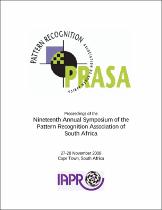JavaScript is disabled for your browser. Some features of this site may not work without it.
- ResearchSpace
- →
- Research Publications/Outputs
- →
- Conference Publications
- →
- View Item
| dc.contributor.author |
Halland, K

|
|
| dc.contributor.author |
Britz, K

|
|
| dc.date.accessioned | 2009-02-12T11:13:31Z | |
| dc.date.available | 2009-02-12T11:13:31Z | |
| dc.date.issued | 2008-11 | |
| dc.identifier.citation | Halland, K and Britz, K. 2008. Inductive reasoning in description logics. 19th Annual Symposium of the Pattern Recognition Association of South Africa (PRASA 2008). Cape Town, South Africa, 27 - 28 November, pp 175-176 | en |
| dc.identifier.isbn | 9780799223507 | |
| dc.identifier.uri | http://hdl.handle.net/10204/2987 | |
| dc.description | PRASA 2008 | en |
| dc.description.abstract | Inductive reasoning is a form of inconclusive reasoning for making generalisations based on observations. In the field of pattern recognition, inductive reasoning is often called learning, where general rules are derived from empirical data in the context of some background knowledge. In this paper the authors identified four different kinds of inductive reasoning that can be performed in description logics: Concept induction (or concept learning) involves giving a definition of a new concept in terms of existing concepts in the knowledge base, based on the characteristics of a sample of individuals. ABox induction involves the inference of relationships between existing classes based on the knowledge about all individuals that belong to some class. TBox induction involves the inference of a TBox axiom which summarises or generalises a number of other TBox axioms. For example, if the TBox contains a number of axioms stating that various concepts are subclasses of a particular concept, but are also disjoint from some other particular concept. Then a person can inductively infer that the two (particular) concepts are disjoint. Finally, knowledge base induction is an abstraction of the other three forms of induction, allowing the inference of a generalization over a combination of ABox and TBox statements. | en |
| dc.language.iso | en | en |
| dc.publisher | PRASA 2008 | en |
| dc.subject | Inductive reasoning | en |
| dc.subject | ABox induction | en |
| dc.subject | TBox induction | en |
| dc.title | Inductive reasoning in description logics | en |
| dc.type | Conference Presentation | en |
| dc.identifier.apacitation | Halland, K., & Britz, K. (2008). Inductive reasoning in description logics. PRASA 2008. http://hdl.handle.net/10204/2987 | en_ZA |
| dc.identifier.chicagocitation | Halland, K, and K Britz. "Inductive reasoning in description logics." (2008): http://hdl.handle.net/10204/2987 | en_ZA |
| dc.identifier.vancouvercitation | Halland K, Britz K, Inductive reasoning in description logics; PRASA 2008; 2008. http://hdl.handle.net/10204/2987 . | en_ZA |
| dc.identifier.ris | TY - Conference Presentation AU - Halland, K AU - Britz, K AB - Inductive reasoning is a form of inconclusive reasoning for making generalisations based on observations. In the field of pattern recognition, inductive reasoning is often called learning, where general rules are derived from empirical data in the context of some background knowledge. In this paper the authors identified four different kinds of inductive reasoning that can be performed in description logics: Concept induction (or concept learning) involves giving a definition of a new concept in terms of existing concepts in the knowledge base, based on the characteristics of a sample of individuals. ABox induction involves the inference of relationships between existing classes based on the knowledge about all individuals that belong to some class. TBox induction involves the inference of a TBox axiom which summarises or generalises a number of other TBox axioms. For example, if the TBox contains a number of axioms stating that various concepts are subclasses of a particular concept, but are also disjoint from some other particular concept. Then a person can inductively infer that the two (particular) concepts are disjoint. Finally, knowledge base induction is an abstraction of the other three forms of induction, allowing the inference of a generalization over a combination of ABox and TBox statements. DA - 2008-11 DB - ResearchSpace DP - CSIR KW - Inductive reasoning KW - ABox induction KW - TBox induction LK - https://researchspace.csir.co.za PY - 2008 SM - 9780799223507 T1 - Inductive reasoning in description logics TI - Inductive reasoning in description logics UR - http://hdl.handle.net/10204/2987 ER - | en_ZA |






